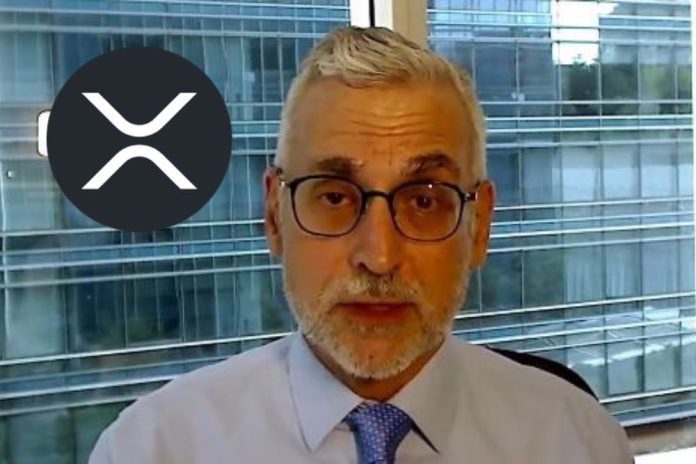Stuart Alderoty, Chief Legal Officer of Ripple, recently responded to a tweet by Devin Finzer, CEO of the NFT marketplace OpenSea, in which Finzer expressed his concern over a Wells notice from the U.S. Securities and Exchange Commission (SEC).
Finzer’s tweet highlighted the SEC’s intention to sue OpenSea because non-fungible tokens (NFTs) on the platform might be considered securities.
Alderoty, in his response, drew attention to a 1976 ruling by the SEC that exempted art galleries from registering with the SEC, even when the galleries promoted and sold art to buyers with investment motives. This shows that the regulator is contradicting itself without even noticing.
Alderoty’s Reference to the 1976 SEC Ruling
Alderoty’s tweet succinctly stated: “Fun fact: In 1976, the SEC ruled that art galleries, even when promoting and selling to buyers that had investment motives, didn’t need to register with the SEC.” This historical precedent, according to Alderoty, raises questions about the current stance of the SEC towards NFTs and the broader digital art market.
The 1976 ruling referenced by Alderoty involved a case where art galleries were permitted to sell packages of lithographs without the need for SEC registration, even though some purchasers may have had investment motives. The SEC at that time recognized that these transactions did not constitute the sale of securities under the Securities Act of 1933.
The ruling emphasized that the nature of the goods (art in this case) and the context of their sale did not align with the definition of securities, despite the potential for financial gain on the part of the buyers.
Finzer’s Concerns Over the SEC’s Actions
In contrast, Finzer’s tweet reflects deep concern over the SEC’s decision to issue a Wells notice to OpenSea. A Wells notice is an official communication from the SEC indicating that the agency plans to bring an enforcement action against the recipient.
Finzer expressed shock at the SEC’s move, arguing that it threatens to stifle innovation and harm creators and artists who rely on platforms like OpenSea to distribute their work.
Finzer’s argument is centered on the idea that NFTs, by their nature, are creative goods. They encompass art, collectibles, video game items, domain names, event tickets, and more.
Regulating these digital assets as securities, according to Finzer, would be akin to applying the same rules to digital art as applied to complex financial instruments like collateralized debt obligations.
He underscores the potential negative impact on a wide range of creators, particularly those who lack the resources to defend themselves against regulatory actions.
The SEC’s “Regulation by Enforcement” Approach
The SEC’s approach, described by Finzer as “regulation by enforcement,” has been a point of contention within the broader cryptocurrency and digital asset industries. Companies such as Coinbase, Uniswap, Robinhood, Kraken, and Consensys have all faced challenges from the SEC in recent years.
Finzer suggests that the SEC’s move against NFTs represents an unprecedented expansion of its regulatory reach, one that could have far-reaching consequences for the digital art and creative industries.
We are on twitter, follow us to connect with us :- @TimesTabloid1
— TimesTabloid (@TimesTabloid1) July 15, 2023
OpenSea’s Commitment to Defending Creators
In his response, Finzer pledged to fight the SEC’s actions and announced a $5 million fund to help cover legal fees for NFT creators and developers who receive similar notices. He emphasized the importance of allowing innovation to continue without fear of regulatory overreach and called for the SEC to reconsider its position.
The ongoing debate between regulatory bodies and the digital asset industry underscores the need for a balanced approach that protects investors while fostering innovation and creativity. As this situation develops, the legal battles and regulatory decisions that follow will likely have lasting implications for the future of digital art and NFTs.
Disclaimer: This content is meant to inform and should not be considered financial advice. The views expressed in this article may include the author’s personal opinions and do not represent Times Tabloid’s opinion. Readers are urged to do in-depth research before making any investment decisions. Any action taken by the reader is strictly at their own risk. Times Tabloid is not responsible for any financial losses.
Follow us on Twitter, Facebook, Telegram, and Google News



